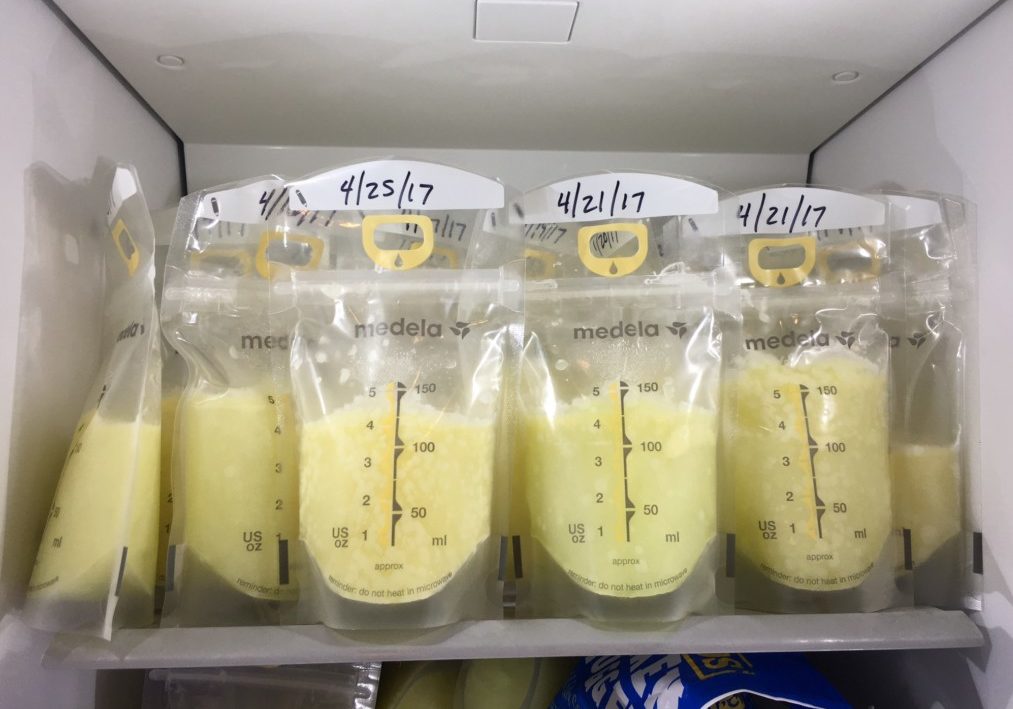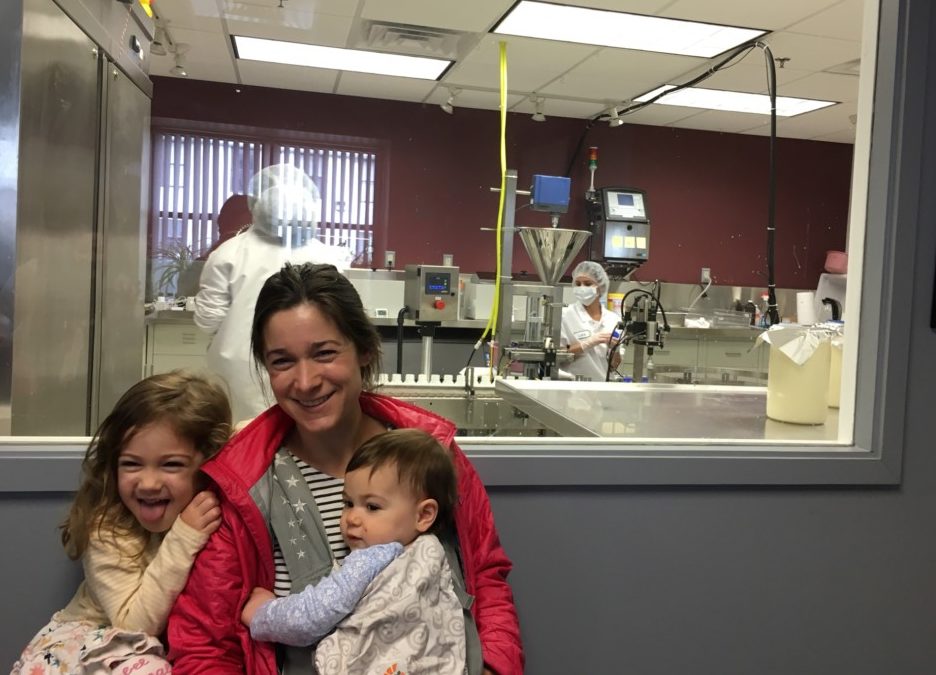
At the end of March, my baby daughter caught that horrible cold that was going around. She had a fever and was so full of snot she could barely breathe through her nose. Nursing was tough for her, and she would stop after just a few minutes. My breasts felt full almost constantly, and in the interest of maintaining my milk supply (and getting some relief) I started pumping. I got 22 ounces over the course of two days, and even though my baby doesn’t take a bottle, I saved that milk in the freezer. About a week later, I decided to look into donating that breast milk.
Mothers’ Milk Bank Northeast
My first daughter just couldn’t wait to be born, and I went into pre-term labor with her at 32 weeks. Thankfully, my doctor managed to stop my labor, and after seven weeks of bed rest, she was born full-term. If she’d been born early, she would have spent time in the NICU, and I know I would have been desperate to do whatever I could to give her the best possible chance at health. I’d read about breastmilk donation and milk banks, and when I did some Googling I found the Mothers’ Milk Bank Northeast, which accepts donated breastmilk and provides it to hospitals for use in the NICU or the nursery. Outpatients can also receive donor milk via prescription. The Milk Bank is located in Newton, about 15 minutes from my house. After playing some phone tag, I spoke to one of their lactation consultants, who explained the milk donation process to me.
Prior to donation
First, potential donors answer a few questions about their health and habits over the phone. Next, donors fill out some paperwork, including another survey about health and habits. If you pass these initial screenings, you can start pumping and freezing! Donors need to commit to a minimum milk donation of 100 ounces, but the Mothers’ Milk Bank Northeast prefers 150. When you are close to the minimum number of ounces required, you have to get a blood test. The Milk Bank sends you the kit in the mail, you get the blood drawn, and you mail it back. The results come in after about two business days, and then, if you pass, you can bring in your donation!
Slow and steady
Because I’d been quick to pump those 22 ounces, I thought getting to 100 would be a breeze. The Mothers’ Milk Bank Northeast emphasizes that you have to feed your own baby first. So I would pump at night, right before I went to bed, getting at least three to four ounces and closer to five ounces on a really good night. But sometimes I’d forget about pumping and was just too tired when I finally remembered. Then I got an ear infection and couldn’t donate during my course of antibiotics, and for three days after. Then it was Passover, and I drank the (required!) glasses of wine. And you can’t pump milk for donation for 24 hours after consuming any alcohol.
Getting into a routine
After a few hiccups (and swapping the batteries in my breast pump), I was getting four to five ounces of breastmilk every night. I’d mark the bags with the date and stick them in the freezer. (Milk can be stored for three months in a refrigerator/freezer, or for six months in a standalone freezer before taking it in as a donation.) I learned the hard way that it’s a good idea to record ounces pumped each night and keep a running total of milk volume. We had to eat the frozen salmon burgers, french fries, and two boxes of Trader Joe’s molten chocolate macarons in order to make room for more breastmilk!

It took me about 10 weeks to pump the required amount of milk. After getting the results of my blood test, I brought 164 ounces of breastmilk to the Mothers’ Milk Bank Northeast. Both of my daughters came with me, and we watched as they processed and pasteurized milk that had come in from other donors. I don’t particularly enjoy pumping. I don’t like washing the bottles and the pump parts with all of their tiny crevices. But it’s a wonderful feeling to know you’ve had a hand in giving a teeny tiny baby his or her best possible chance at health. So if you’ll excuse me, I have a date with my breast pump.
















Great article! I’ve always wondered about the milk donation process and it’s is something I may consider now that Im nursing baby #2. I’m glad you persevered too!